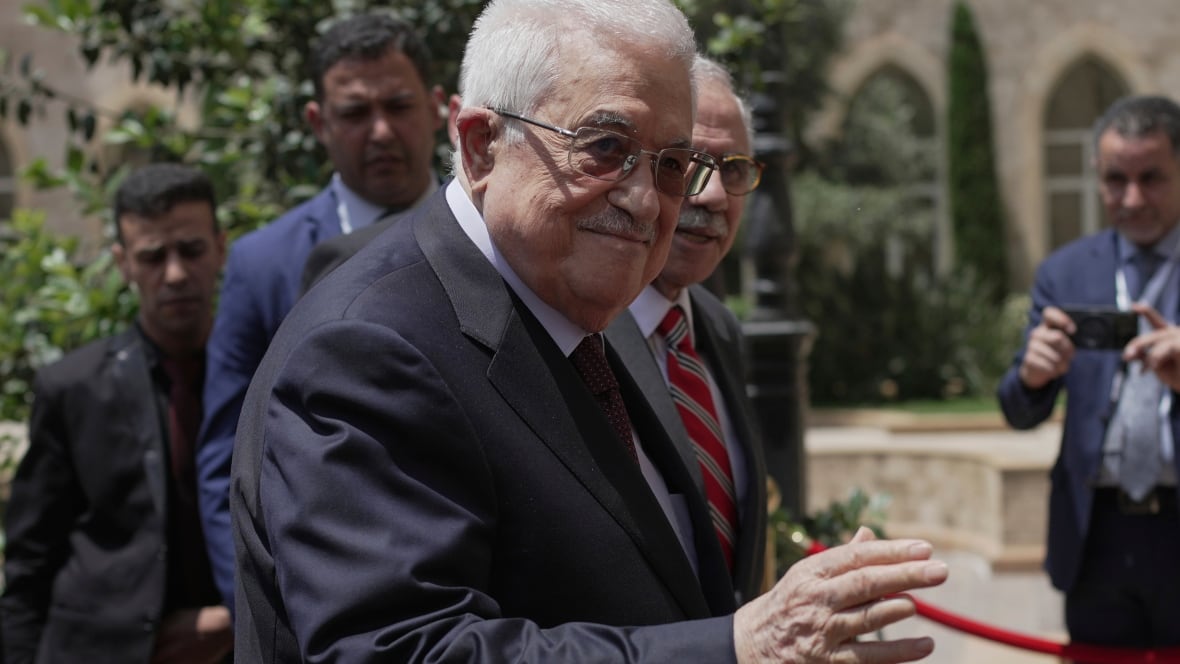World
U.S. Denies Mahmoud Abbas Visa for UN Gathering, Sparks Backlash

The United States has denied a visa to Palestinian President Mahmoud Abbas, preventing him from attending a crucial United Nations gathering in New York City. This decision has drawn sharp criticism from Palestinian officials and several international leaders. Abbas’s spokesperson emphasized the need for the U.S. to reverse its decision, highlighting its contradiction to international law.
Abbas was set to participate in discussions at the UN General Assembly, which convenes on September 9, 2023, just ahead of the second anniversary of the October 7, 2023, attack by Hamas that escalated the conflict in Gaza. According to a U.S. State Department official, the denial extends to approximately 80 other Palestinians associated with the Palestine Liberation Organization (PLO) and the West Bank-based Palestinian Authority (PA). The PA serves as the governing body for Palestinian territories, handling various administrative functions such as security and education.
The Palestinians hold observer status at the UN, akin to that of the Holy See. Recently, Canadian Prime Minister Mark Carney announced that Canada would join other nations, including the U.K. and France, in recognizing Palestinian statehood at the upcoming assembly. This marks a notable shift in Canadian foreign policy, which has historically supported a two-state solution.
Abbas’s office expressed astonishment at the U.S. visa decision, asserting it violates the UN Headquarters Agreement. Under this 1947 agreement, the U.S. is generally required to ensure access for foreign diplomats to the UN. Nevertheless, Washington maintains it can deny visas for reasons related to security and foreign policy.
International Reactions to U.S. Visa Decision
On Saturday, Nabil Abu Rudeineh, spokesperson for Abbas, publicly called on the U.S. to revisit its decision. “We call on the U.S. administration to reverse this decision, which contradicts international law,” he stated, emphasizing the importance of unrestricted access to the UN. Several European foreign ministers echoed these sentiments during an EU meeting in Copenhagen.
French Foreign Affairs Minister Jean-Noël Barrot remarked that “a UN General Assembly cannot be subject to any restrictions on access.” Similarly, Irish Foreign Affairs Minister Simon Harris urged the EU to protest the U.S. decision “in the strongest possible terms.” Spanish Prime Minister Pedro Sánchez also expressed support for Abbas, labeling the visa decision as “unjust” and asserting that Palestine has a right to be heard in international forums.
The U.S. State Department justified its actions by reiterating longstanding allegations against the PA and PLO regarding their failure to renounce extremism while pursuing “unilateral recognition” of Palestinian statehood. Palestinian officials refute these claims, arguing that decades of U.S.-mediated negotiations have not succeeded in addressing Israeli occupation or establishing an independent Palestinian state.
Historical Context and Future Implications
The U.S. visa denial for Abbas is not unprecedented. In 1988, the U.S. similarly refused a visa to then-Palestinian leader Yasser Arafat, resulting in the UN General Assembly convening in Geneva to allow him to speak. A UN spokesperson stated that the organization intends to discuss the visa issue with the State Department.
The State Department has expressed a commitment to holding the PA and PLO accountable for their obligations, particularly in relation to the Hamas-led attack in October 2023, which triggered the current conflict. Israeli officials have welcomed the U.S. decision, reflecting concerns over Western nations’ pledges to recognize Palestinian statehood at the UN General Assembly.
As the political landscape continues to evolve, with at least 147 out of 193 UN member states recognizing Palestinian statehood, the implications of the U.S. visa denial resonate on multiple fronts. The Palestinians have long sought statehood within the territories of the Israeli-occupied West Bank and Gaza, with East Jerusalem as their envisioned capital. The U.S. maintains that the establishment of a Palestinian state can only occur through direct negotiations with Israel, a process that remains fraught with challenges and complexities.
-

 Science3 months ago
Science3 months agoToyoake City Proposes Daily Two-Hour Smartphone Use Limit
-

 Top Stories3 months ago
Top Stories3 months agoPedestrian Fatally Injured in Esquimalt Collision on August 14
-

 Health3 months ago
Health3 months agoB.C. Review Reveals Urgent Need for Rare-Disease Drug Reforms
-

 Technology3 months ago
Technology3 months agoDark Adventure Game “Bye Sweet Carole” Set for October Release
-

 World3 months ago
World3 months agoJimmy Lai’s Defense Challenges Charges Under National Security Law
-

 Lifestyle3 months ago
Lifestyle3 months agoVictoria’s Pop-Up Shop Shines Light on B.C.’s Wolf Cull
-

 Technology3 months ago
Technology3 months agoKonami Revives Iconic Metal Gear Solid Delta Ahead of Release
-

 Technology3 months ago
Technology3 months agoApple Expands Self-Service Repair Program to Canada
-

 Technology3 months ago
Technology3 months agoSnapmaker U1 Color 3D Printer Redefines Speed and Sustainability
-

 Technology3 months ago
Technology3 months agoAION Folding Knife: Redefining EDC Design with Premium Materials
-

 Business3 months ago
Business3 months agoGordon Murray Automotive Unveils S1 LM and Le Mans GTR at Monterey
-

 Technology3 months ago
Technology3 months agoSolve Today’s Wordle Challenge: Hints and Answer for August 19









